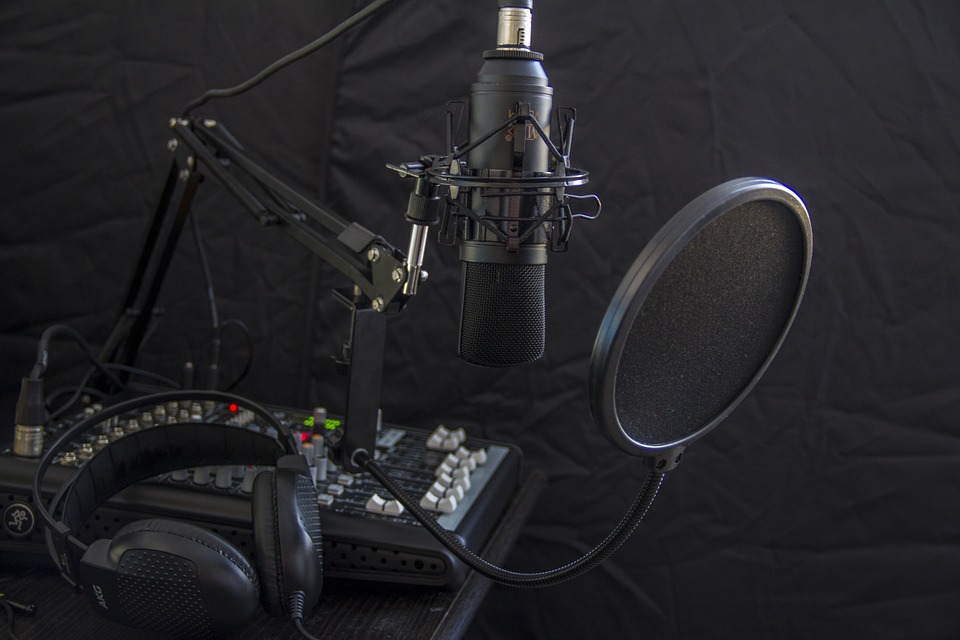Dealing with the media
Interview with
A perspective from biologist Stephen Curry about what it's like to be interviewed  for radio...
for radio...
Stephen - After lunch, I head over to the students' union to judge a cake competition. The standard is not quite Bake Off but the students are full of enthusiasm for baking and, gratifyingly, for their studies. One even tells me how much he enjoyed my protein crystallography lectures; this is a far from universal reaction to material that many of the students find challenging, or as they put it, "boring".
On my way back to the office, I realise I've missed Alok Jha's radio 4 documentary on scientific integrity.
Alok - I've been reporting on science and scientists for more than fifteen years; it's an exhilarating experience, whether watching scientists...
Stephen - I was keen to hear it because I'd been interviewed for the programme back in January by Alok and his producer, Faizal Farook.
Alok - I went to visit Professor Stephen Curry at Imperial College London to find out what it's like on the front line of biology. Stephen how are you?
Stephen - Hi Alok - it's good to see you again.
Okay well my lab is mostly a structural biology lab so we're interested in the structures of various different protein molecules and particularly the area we work in is in RNA viruses. So things like norovirus (the winter vomiting bug) or foot-and-mouth disease virus, which are actually related to one another in genetic terms.
We'd spent over an hour talking about how the pressures on researchers can sometimes pervert what is reported in the scientific literature.
The philosophers of science will teach you that a hypothesis can only be falsified and what scientists should set out to do is to falsify a hypothesis. Well, in reality, if you come up with a hypothesis it's because some of your existing data's told you that's probably a good idea and you then do experiments to try and generate more data that will, hopefully, test and support the hypothesis. If you thought of a brilliant idea, you want it to be true.
Alok - So the reality of scientific thinking might not exactly comply with the philosophical ideals and that can cause...
Stephen - It's a good documentary. Alok has dug deep into the topic by talking to a lot of interesting people -including a Dutch psychology researcher, Diederik Stapel, who had been caught fabricating his data. My only beef with it is that much of what I had to say has ended up on the cutting room floor. I should have been pithier, I tell myself.
But I'm not really put out. I'm happy to contribute to these sorts of programmes. Most scientists rely on public funding of one form or another and to me, that brings with it the responsibility to give a good account (in both senses of the word) of what we do with it. Some of my colleagues are more wary of talking to journalists, moaning privately of their tendency to sensationalise, but the only effective counter to that is talking to them.
I've had my own run-ins, to be sure. I'm taken a number of journalists to task on my blog for over-egging a story or for not taking enough trouble to get the facts straight. We've all seen the articles on miracle cures for cancer or MS or whatever.
But it's not always the journalists to blame. A study from the the British Medical Journal found that press releases in health-related research were the primary source of inaccuracies. So universities - and their scientists - are sometimes guilty of overstating the significance of their work.
We're back to the problem of needing to recalibrate our incentives to reward good, reliable science. That's not to say that we shouldn't shout about the really exciting stuff - the Higgs Boson or the development of genome editing (or, in my case, work showing how norovirus replication gets kick started in infected cells) - but we also have to be honest about the fact that most scientific advances are relatively small.
Even so, those smaller stories can be interesting and are worth telling, not least so that people can see that science is mostly a rather ordinary business. There can also be a way in to important debates that deserve to be aired in public, on the future of gene editing in humans, for example, or three-parent babies, or artificial intelligence. Science needs debate and direction, to help us think through the ethics and morality surrounding future research.
I stare at the photo of my children on the desk, wondering what the world of science will be like when they reach my age. I pack my bag and try not think about the train journey home, where I'll be stuffed in with other sweaty commuters on this muggy summer's day.
I console myself: it's been a long day and tomorrow will be different. And then I remember that tomorrow will be different. I have cleared the whole day for marking exams.










Comments
Add a comment